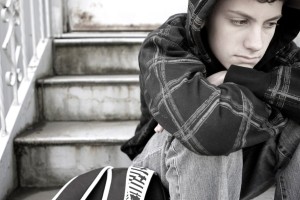
Discussion on Support
On January 30, 2015, the American Youth and Policy Forum (AYPF) held a panel discussing the issue of foster care children emerging from the system at 18 and how organizations and departments in the United States can go about helping to prepare and support them during the transition. The panel included Michael Leach, Director of Independent Living within the Department of Children and Families in Tennessee; Cecilia Tran of California, Policy Analyst for The John Burton Foundation; and Ann Rossi, Department Analyst for the Michigan Department of Human Services.
According to AYPF, over 26,000 youth turn 18 and age out of the foster care system each year. Among them, 40% will experience homelessness and less than 10% will complete a four year college education . They will also deal with financial and emotional struggles. This makes these youth susceptible to trafficking.
AYPF found that 43 states have additional service for foster care kids to the age of 21, three states to the age of 19, two states to the age of 20 and 22, and only one state to the age of 23.
Working at the State Level
Michael Leach spoke about how Tennessee is working with foster kids at an earlier age so they are better prepared once they age out. They are developing better training for foster parents to properly care, educate, and help the kids who come into their home. For those who are exiting out of the foster care system in California, The John Burton Foundation provides housing and helps them learn how to live independently. During this time, some foster kids attend college. Ann Rossi is working in the state of Michigan to help those who enter college from foster care to adapt, do well in academics, graduate, and find employment.
What Can Be Done
We can help foster kids in our communities by simply reaching out to them; being a source of support and encouragement so they do not feel alone. Second, we can share our experiences, knowledge, and resources so they can learn from people they trust. Third, help direct youth by showing them opportunities that are available to them, including education, clubs, athletics, and jobs; activities and roles that are designed to encourage interests and prepare them for life beyond foster care and college.
Shared Hope International partners with Mission 21, an organization that provides training and support to therapeutic foster families who will provide specialized services to youth who have been trafficked. With programs like these and the help of the community, foster kids that age out of the system can be better prepared to live a life where they feel supported by those around them and pursue their goals.






